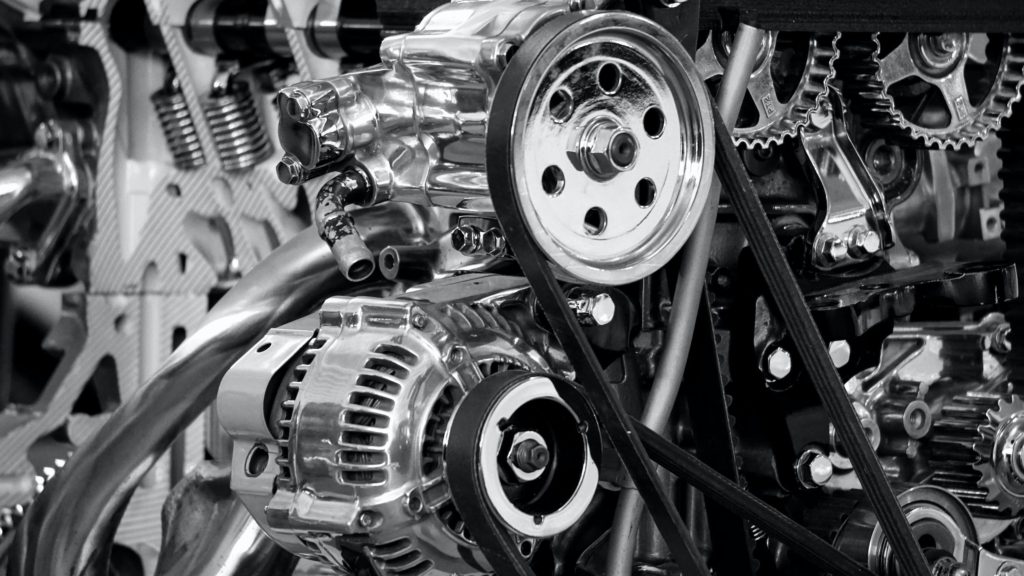Compressed air has a wide application in various industries today. It is mainly used in machines and powering tools in manufacturing plants. However, the presence of water and moisture in compressed air can cause damage and rust to the equipment.
Compressed air is generally treated with specialized equipment, including compressed air dryers and water separators, to avoid such issues. Although both these types of equipment are used to remove moisture from compressed air, they function differently and have unique benefits. This article covers the key differences between compressed air dryers and water separators. So, keep reading to learn more.
Differences Between a Compressed Air Dryer and a Water Separator
Compressed air dryers are designed to extract water vapor from compressed air to provide dry air for use in many industrial applications. Desiccant dryers and refrigerated dryers are the most commonly used compressed air dryers.
Refrigerated dryers have a unique refrigeration system for cooling compressed air. As a result, vapor vapors condense and are thus eliminated from the air. This water is then removed from the system, leaving dry compressed air. In contrast, desiccant dryers eliminate water vapors from compressed air by allowing it to pass through adsorbent desiccant material.
Water separators function to remove accumulated, bulk water from compressed air systems. They use centrifugal force and gravity to separate the water from the compressed air, providing clean, dry air for industry use.
Water separators are often used with compressed air dryers to provide extra protection against moisture. The main distinction between water separators and compressed air dryers lies in how they eliminate moisture and water vapor from compressed air.
Compressed air dryers remove water vapor from the air, while water separators remove accumulated water from systems. Compressed air dryers function to provide dry air for machinery and equipment. In contrast, water separators remove water from the compressed air to prevent corrosion and wear and tear.
When selecting between a compressed air dryer and a water separator, it is essential to consider the application’s specific needs. A compressed-air dryer will be the best option if the application requires completely dry air.
Another significant difference between compressed air dryers and water separators is the type of contaminants they can remove. Water separators are primarily designed to remove water droplets from the compressed air systems. Compressed air dryers remove water vapor and other contaminants, such as oil and particulate matter.
Compressed air is often contaminated with oil, dust, and other impurities, which can cause damage to equipment. These substances also compromise the quality of the end product. For example, in the food and beverage industry, unfiltered and moist compressed air can contaminate the final product’s taste and quality.
Compressed air dryers use various filtration methods to remove these contaminants, including coalescing filters. These filters work to remove oil and water droplets from compressed air. Moreover, adsorption filters work to remove water vapor and other impurities.
Another key difference between compressed air dryers and water separators is the way they operate. Water separators rely on the difference in density between water and air to remove water droplets from the compressed air systems.
The separator slows the air down, allowing the water droplets to fall out of the air stream and collect in a reservoir at the bottom of the separator. From there, the drains out of the system.
In terms of maintenance, water separators are relatively simple and easy to maintain. They generally require standard draining to remove the collected water from the system. Moreover, in most systems, a water separator separates water from the airflow by removing aerosols and liquids. Also, the mechanical centrifugal spinners used in water separators don’t need to be replaced.
Therefore, water separators are a low-maintenance option. Due to their little airflow resistance, they can also assist in reducing running expenses. Dryers are substantially more costly than water separators. Therefore, water separators offer great value as you don’t have to spend too much money on maintenance.
Compressed air dryers require more frequent maintenance and servicing. You must replace the filters regularly to ensure proper functioning. If you use a refrigerated dryer, you must regularly maintain the refrigeration system. Doing so will ensure the effective removal of water vapors from condensed air systems. Also, remember that the maintenance costs of these systems are quite high.
Final Word
Both compressed air dryers and water separators serve the purpose of removing moisture from the surroundings. However, they differ significantly in their operating principles, the type of contaminants they can remove, and their maintenance requirements.
Choosing the right solution for your application will depend on various factors. These include the level of moisture in compressed air, the types of contaminants present, and the required flow rate and pressure. Consulting with a compressed air systems company can help you choose the best one for your needs. Thus maximizing the efficiency and reliability of your compressed air system.
If you want to get rid of condensation in the compressed air system, it’s crucial to remove both water vapor and liquid water. A dryer can lower the dew point to levels well below the lowest air temperature the system can produce.
Do you want an affordable, durable, high-quality compressed air dryer filter? Look no further than Super Dry Systems. They have over 25 years of experience in adsorption technology, which makes them one of the best suppliers of compressed air dryer filters. Moreover, they offer a range of products that reduce approximately 99% of contaminants in compressed air.
You can contact them by clicking here. You call 1-888-828-1122 or email info@super-dry.com to learn more about their products and services.


